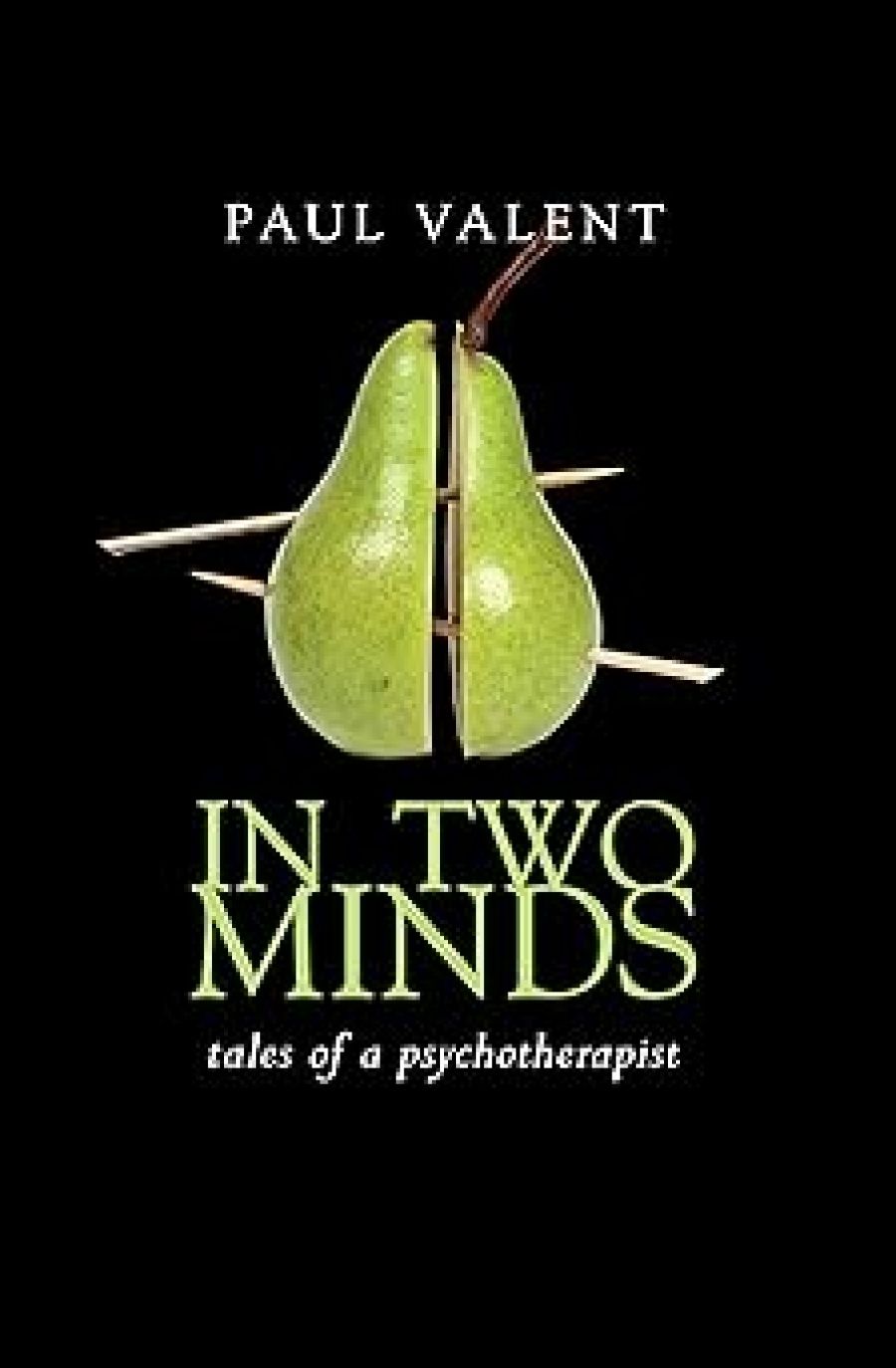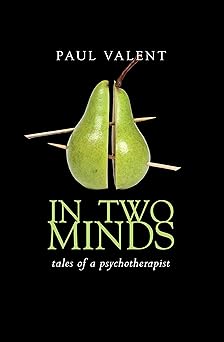
- Free Article: No
- Contents Category: Psychology
- Review Article: Yes
- Article Title: Unafraid
- Online Only: No
- Custom Highlight Text:
‘I am interested to know all about you: who you are, how your life developed, from the time your mother was pregnant with you, till today. Are you willing to tell me?’ This request, made by Paul Valent to one of his first patients, is as seductive as it is impossible. The great realist writers of the nineteenth century approached their characters with the same voracious desire to know everything, to explain everything, to have everything revealed. But the psychotherapist’s mission is far more daunting than the novelist’s, for the secrets he aims to uncover are those the subject hides from himself.
- Book 1 Title: In Two Minds
- Book 1 Subtitle: Tales of a psychotherapist
- Book 1 Biblio: University of New South Wales Press, $39.95 pb, 349 pp
- Book 1 Cover Small (400 x 600):

In Two Minds: Tales of a Psychotherapist is Valent’s recounting of his professional engagement with such secrets over a distinguished career. The book charts his growing understanding of how the mind works; in particular, the relationship between our ‘two minds’, conscious and unconscious. The notion of the unconscious has always been fundamental here, and Valent argues that science is finally catching up, finding a neurological home for it in the right brain: the non-verbal, non-rational, non-linear dark twin of our verbal, logical and self-conscious left hemisphere. In contrast to the biblical injunction, for the left not to know what the right is doing brings all nature of unhappy consequences, both physical and mental. But keeping secrets from itself, Valent argues, is precisely what the mind does when confronted with trauma too great to bear. While it does so as a means of protection, this armour becomes a prison, shutting out change and growth. In psychotherapy the goal is to reconnect these two parts of the mind, helping patients to recognise the original trauma, perhaps for the first time. A co-founder of the Australasian Society for Traumatic Stress Studies, Valent did pioneering work with survivors of the Ash Wednesday bushfires. However, the majority of case studies detailed in his book are adult survivors of childhood sexual abuse. Their accounts do not make for easy reading, but the reader is struck not merely by the suffering that adults can inflict on children but also by the mind’s extraordinary ingenuity, the subterfuges it engages in to survive, the bargains made between physical illness and madness, between survival and forgetting.
This is something Valent knows firsthand. Originally from Slovakia, he and his parents spent three years in hiding in Hungary during World War II. While they survived and later migrated to Australia, almost all of their extended family perished in the Holocaust. Psychoanalysis helped Valent to rediscover and recover from his own grief, and it is clear that his childhood experience of trauma sensitised him to the suffering of others. It also left him with a bedrock of hope: ‘I believed that if it was possible to be happy after the Holocaust, as I have been basically for many years now, then there was hope for the severely traumatised patients whom I saw.’
In Two Minds is a record of Valent’s patients’ progress and of his own development as a psychotherapist. The title aptly describes the Socratic manner in which Valent interrogates himself and the nature of his discipline, ‘But what is psychiatry about? What is the “psych” in psychiatry?’ The narrative would have been tauter had Valent compressed the exchanges with his patients, but their dialogues do give a real sense of the peculiar relationship between therapist and patient; as though two people are stepping gingerly through a darkened room, hands outstretched, trying to make sense of the shapes found there without doing further damage. Valent emerges as a profoundly compassionate figure, a healer in the widest sense of the word, with a deep appreciation of his patients’ honesty, trust and courage. His approach is summarised by the counsel he gives to a young psychiatric registrar: ‘Do not be afraid of love.’
Valent suggests that it was his humanistic approach to his patients, as much as his allegiance to the importance of the unconscious, that distanced him from many of his peers, especially in the hospital emergency departments where he worked as a psychiatric consultant. When Valent began his career, ECT was being proclaimed the equivalent of penicillin and drugs embraced as the future of psychiatry. Valent was mocked as ‘Mr Biopsychosocial’ for his conviction that all disorders are a mixture of biological, psychological and social aspects.
In Two Minds is not a simple paean to the profession of psychotherapy, however. Valent’s first analysis was with a Freudian of the narrowest kind who dismissed his experience of the Holocaust as irrelevant, insisting all meaning lay with his ‘inner oral, anal and phallic desires’. While remaining a respectful and affectionate ‘son’ of Freud, Valent refuses his ‘child-blame theories’ of infant sexuality, interpreting them as a product of Freud’s unresolved trauma.
This issue of who is victim and who is perpetrator recurs in Valent’s book. His work with the adult survivors of childhood abuse, some of whom became abusers themselves, renders innocence and guilt ambiguous categories. But one does not need to be a psychoanalyst to see the connection between the author’s experience as a Jewish child during World War II and his career spent rescuing other endangered children, albeit those now trapped in adult neuroses. Can good ever come out of bad? Paul Valent’s life and work provide an eloquent answer.


Comments powered by CComment